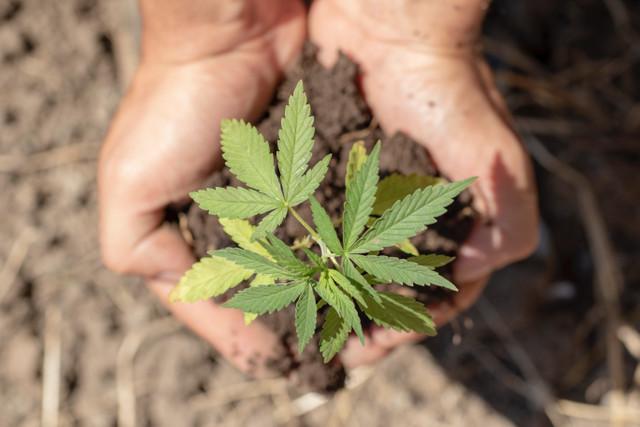
What is the difference between hemp and CBD, and how do you read product labels?
Whether you are a newcomer to the world of cannabis or not, the terms surrounding the industry can be quite confusing. Hemp products and CBD products have a few decade history, but recent waves of legalization and decriminalization caused a massive surge in the industry. Is hemp oil the same as CBD oil? Is CBD legal everywhere now? These are all questions that anyone is likely to have, especially if they are dipping into the world of CBD and cannabis for the first time. For example, many people are surprised to learn that there is a difference between hemp oil and CBD oil, but that they may not be as different as you would think.
The difference between hemp oil and CBD oil
While they do stem from the same plant (pun intended), there is a difference between hemp oil and CBD oil, especially when it comes to labeling and regulation. The regulation and still-in-process legalization nature of cannabis drives the need to distinguish between the two. Despite this, the terms are loosely interchangeable, and it is important to read the entire label and thoroughly investigate a product before purchasing it.
The cannabis hemp plant
The cannabis plant, or Cannabis sativa, is the overarching species that all hemp and marijuana is derived from. The cannabis plant itself has been around for many thousands of years, and has been used medicinally and industrially for just as long. For example, did you know that George Washington himself grew hemp? Back then, it largely went into textile and rope production, but was a very lucrative crop nonetheless. It is still possible to grow industrial hemp with little-to-no CBD and no THC, and this crop is still popular for industrial use today.
The cannabis plant has many different varieties and types, but is largely split into “indica” and “sativa” varieties. There is also a large difference between marijuana and hemp plants, with the biggest distinction being the levels of CBD and THC present in the plant material. The levels of cannabinoids within the plant material also varies between parts of the plant. For example, the buds of the plant often contain the highest concentration of beneficial molecules, with the leaves, stalks, and seeds containing little to none.

Why cannabinoids matter
While the fibers of the hemp stalk have many industrial uses and hemp seeds have dense nutritional value, the majority of the beneficial molecules lie in the bud material. The cannabinoids that hemp plants contain are what bind with the human body and produce the greatest effects. Cannabinoids work by binding to the endocannabinoid receptor cells located in our bodies’ endocrine glands. These endocrine glands are located throughout the entire body, and produce a variety of hormonal signals that drive just about every major biological function in humans.
Our bodies naturally make cannabinoids to assist with many different physiological and neurological functions, and the cannabinoids present in cannabis mimic those wonderfully. Valid, modern scientific studies are too new to be conclusively proven, but current studies and thousands of testimonials point to CBD being:
- Anti-inflammatory
- Pain Receptor Blocking
- Neuroregenerative
- Anti-viral/anti-bacterial
Those are just a few of the major properties scientists are currently looking into. CBD can help with a variety of ailments, chronic conditions, and mental disorders. It can also help improve overall wellness as a preventative. The main difference between hemp oil and CBD oil is that products labeled as CBD oil often have more THC and terpene molecules, but this is not always the case. Full-spectrum vs broad spectrum is more important when it comes to that on labels.
The entourage effect
The entourage effect is the name given to the phenomenon where CBD’s beneficial properties seem to be amplified when THC and terpene molecules are also present. The most beneficial ratio of these three molecules is still under study, but science and testimonials point to a distinct added benefit involving the entourage effect. Full-spectrum CBD oil will have terpenes and THC present, with the THC content remaining under 0.3% of the total material. Broad-spectrum THC oil is THC-free CBD oil, but still has trace amounts of terpenes.

Legal status of hemp oil and CBD oil
Most places treat hemp oil the same as CBD oil, but there is some distinction when it comes to the level of THC present in the item. Either full spectrum or broad-spectrum CBD may also be labeled hemp oil, but a product labeled hemp oil may not have any THC and perhaps very little or no CBD. The labeling of a product and it’s THC level effect wherein the United States it is legal. Until 2018, all forms of cannabis were illegal, except in certain states where medical marijuana had been legalized. In 2018, the federal government legalized hemp with a content of 0.3% THC or less. Despite this, CBD does remain illegal in several states. Depending on the law of the specific state, you may still be able to consume industrial hemp products or consume non-smokable products only.
Is hemp oil just THC free CBD oil?
Yes, and no. Companies are free to label their products with the terms hemp and CBD and to use either fairly interchangeably. Check a product’s website to see if the item is THC-free CBD oil. A website should also say if the product is full-spectrum or broad-spectrum.

